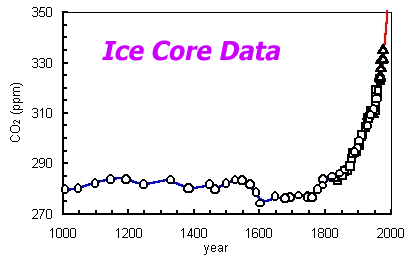Global Warming Sure Stirs Up the Hot AirIn "Global Cool," writer David Warren accuses Nature of a "setup," when it published refereed papers coinciding with the recent Montreal summit conference on Kyoto. This would only be an infraction of scientific ethics if the papers themselves were biased -- Warren totally avoided a charge of bias, but blasted Nature for being "ideological" and forging a "publicity stunt." We should instead applaud Nature for timely publication. Warren claims that the fact that trees love rising CO2 has been a secret "suppressed" by the pro-warming media and politicians. There is a touch of drivel in his claim -- everybody who knows anything at all about photosynthesis has realized for more than half a century that plants can use more CO2 than they get. For example, in my graduate student days, in the Photosynthesis Laboratory at the University of Illinois in the 1960s, we fed our algae 5% CO2 in air. This compares with 0.035% in the atmosphere. This means we were supplying our algae about 140 times the amount in air. That high level was needed to saturate photosynthesis with CO2. But nutrients are limiting in the environment, unlike in the laboratory, thus the high CO2 uptake levels we experienced can not be attained in the environment. Then, Warren suggests that planting trees can solve the problem. Calculations are not very encouraging -- planting trees to soak up rising CO2 levels disrupts soils which releases stored CO2. Old forests are better, but eventually reach equilibrium, as decaying vegetable matter releases stored CO2. And nations are poor guardians of old forests. CO2 is now nearly 20% higher than it was a century ago. The increase is anthropogenic -- the radioactivity level in CO2 has been dropping (meaning that the CO2 increase is from fossil fuels, where C14 levels have had time to decay). And still rising.  [Image: Ice core data on CO2 increase -- from CSIRO , after Etheridge et al. 1998.] Warren claims that present CO2 levels are "significantly below their average for the last 100 million years." However, as observed in France, "En fait, sur les 400.000 ans qui ont précédé 1750, les concentrations de CO2 oscillent entre 200 et 280 ppm." Thus the present level of >335 ppm is 20% higher than the level for the past 400 k years. And even if geological history shows CO2 levels in the distant past were often higher than now, and global temperatures have fluctuated significantly, that is small comfort. A warming globe will indeed cause sea level to rise -- affecting all island nations in a dramatic if not drastic way. Coastal lowlands will suffer, populations will have to move, agricultural practices will be forced to change as tropical temperatures move north, and tropical diseases will become more likely in Europe and North America. Yes, humanity can adjust, but the cost will be significant. Humanity can and is affecting the global climate. It is a "grand experiment" with no reasonable way to stop it, if the results are bad. And there is much greater likelihood of bad results than of good ones. Prudence is required, but the naysayers are not offering any. Dr. John C. Munday 2005 © John C. Munday |